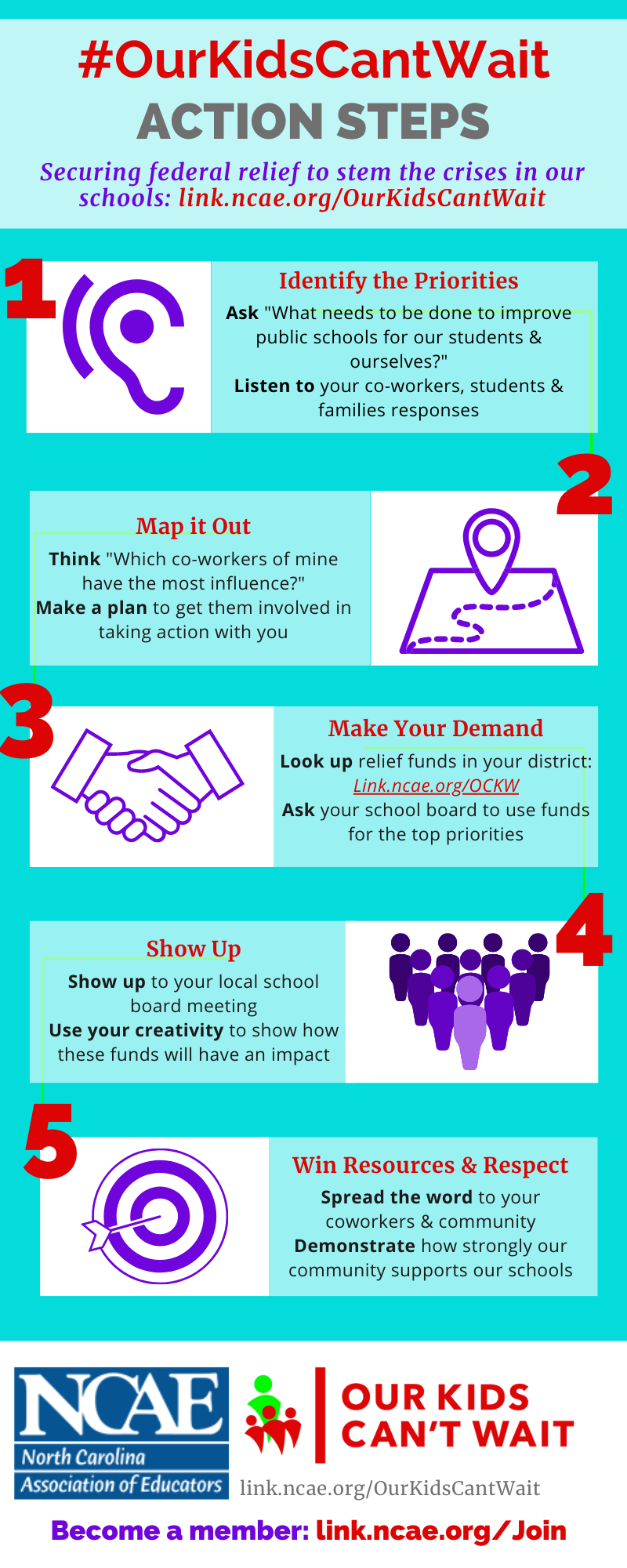Currently, North Carolina public schools are sitting on over $4 billion in federal coronavirus relief funding. And the North Carolina Association of Educators (NCAE) wants school boards to begin spending it.
As part of their Our Kids Can’t Wait campaign, NCAE leaders have outlined “action steps” for its members, as detailed in the infographic below.

NCAE members plan to participate in group strategy sessions on the first Thursday of every month starting in March. Presumably, these sessions will disseminate strategies designed to hasten the expenditure of billions in federal aid.
The Our Kids Can’t Wait campaign represents a surprising departure from the usual tactics employed by the teacher union. In the past, NCAE simply would blame the Republican leadership of the General Assembly for providing “insufficient” resources for our public schools. By raising doubts about Republicans’ commitment to public education, NCAE tried to scare Republican lawmakers into capitulating to their demands and shift voter sentiment to more union-friendly Democrats. It hasn’t worked very well.
NCAE leaders began to shift their attention to the local level late last year. Encouraged by activism in a handful of districts with active NCAE chapters and reeling from a budget that fell short of their unreasonable expectations, NCAE President Tamika Walker Kelly published an op-ed in major newspapers across the state in December urging teachers in all districts to join the fight. Walker urged teachers to initiate local protests and disruptions to address the “educator exodus” and “staff vacancy crisis” in North Carolina public schools, despite little evidence that a crisis exists.
School districts have until 2024 to spend the balance of their coronavirus funds, and the federal government imposed relatively few restrictions on how districts may spend the money. Most school boards plan to spend their windfall strategically over the next two school years (and possibly beyond).
Indeed, we just received the first analysis of learning loss in North Carolina, and state education officials are in the very early stages of formulating strategies to address it. It would be unwise for school districts to begin spending millions without a clear understanding of the pandemic’s lingering educational and psychological effects. Given that Walker Kelly believes that learning loss is a “false construct,” no one should be surprised by her lack of interest in ongoing learning loss research and interventions.
The Our Kids Can’t Wait campaign doubles as a membership recruiting effort. If school boards begin authorizing large, across-the-board bonuses to teachers and staff, then presumably, the NCAE proves their value to potential members willing to waste hundreds of dollars a year in annual dues. When the National Education Association publishes membership statistics at its Annual Meeting and Representative Assembly gathering in July, we’ll find out if they were successful.


